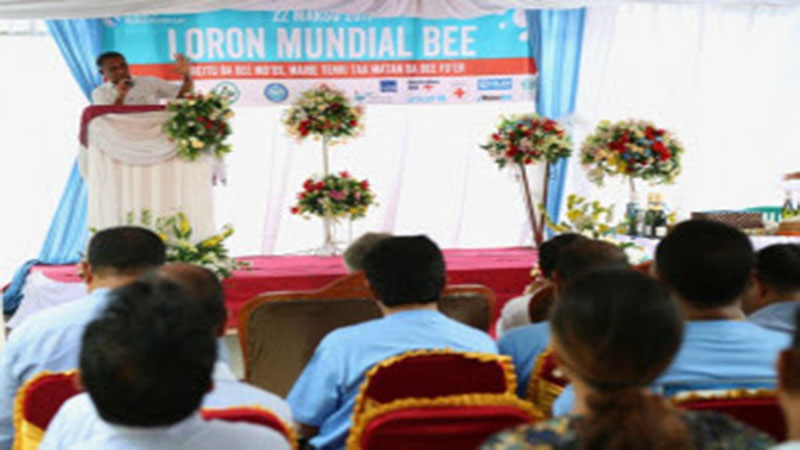In his speech, the Prime Minister stated that water and sanitation are areas of the greatest importance, not only for Timor-Leste but also for the whole world. He explained that paying attention to safe drinking water and the recovery of wastewater was necessary to conserve Timor-Leste’s natural environment.
According to data from the National Directorate of Water and Sanitation (DNAS), a person needs an average of 120 litres of water per day for uses including drinking, washing, cooking, cleaning etc. Timor-Leste has enough water, but many people still do not have easy access to drinking water. The Prime Minister mentioned this problem associated with water and sanitation, recalling that access is still too limited to allow dwellings to have minimum conditions for a healthy life.
In order to be able to answer this problem, the Chief of the Executive declared that there should be a clear policy: “Our water resources are sufficient. We need to develop mechanisms in order to invest more and to manage water collection and distribution, so that the entire population may have access to it. It is not enough to adopt a policy. The policy is a guide, but we need to have a good implementation and financial investment plan so that the policy may become a reality.”
In addition the Prime Minister talked about the use of wastewater through recycling. Referring to the Tibar treatment centre which collects around 170 thousand litres per day, he said if one could turn that wastewater into usable water, considering the 120 litres needed per person, it would be able to supply more than a thousand people per day.
The Prime Minister asked the staff at the National Directorate of Water and Sanitation to improve the coordination among sectors in order to maintain the drinking water system. Even with proper collection and a good distribution network, if the system maintenance does not work it is very difficult to ensure its sustainability.
The Prime Minister called for the entire population to act responsibly and contribute to the water policy so that the policy that will be adopted becomes a reality, particularly in the preservation of springs: “Everyone has a responsibility to care for the water sources in any territory, not to slash and burn but to increase the number of plants and to maintain the water distribution network.”
The Head of Government also asked the development partners who have been working together with the Government, particularly with the National Directorate of Water and Sanitation, to help provide drinking water access to more communities across the country.
The Minister of Public Works Transport and Communications (MOPTC), Gastão de Sousa, stressed that his ministry took an important step, to develop three essential documents in the water and sanitation area. The Policy of Sanitation has already been approved by the Government. The National Policy for the Management of Water Resources and the National Policy of Water Supply are still under discussion in the Council of Ministers, with further review and approval expected soon. Gastão de Sousa stated that “these policies will serve as guidelines for the water sector”.
Also present at this celebration were the Vice Minister of MOPTC, and other members of the Government, National Directors, the Ambassador of Portugal in Timor-Leste, development partners, community leaders of the Municipality of Liquica and members of the community. (ETAN)





Discussion about this post